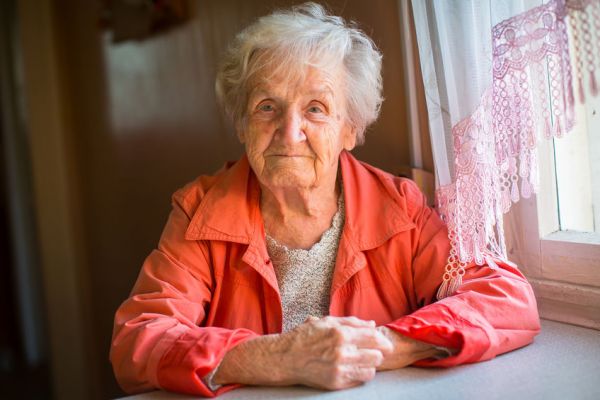Caregiving 101: When Your Elderly Patient Behave Badly
iSavta | 21.02.2020
Balagan -

You'll often hear this Hebrew word from Caregivers who, by some reason, do not like their employer or their working condition. Sometimes, it is because employers don't give their salary on time or not giving them the money that is due to them (Holiday pay, overtime pay, Recuperation pay, etc.) But most of the time, it is because the employer or the elderly patient is behaving badly.
Majority of the Caregivers who left their job complained about the elderly patient’s irrational behaviour, tantrums, hallucinations caused by a progressive disease like dementia and Alzheimer's disease. But, if you are a seasoned caregiver, you will know exactly how to deal with this behaviour and will not resort to quitting.
Here are some classic “bad” behaviours that elderly often exhibits and tips on how to cope with them.
Abusive Behaviour - they are often frustrated and anxious and most of the time, they lashes it out to the caregiver. If this behaviour is tolerated, it can lead to abuse of the caregiver. The root of this behaviour can be an underlying mental illness left undiagnosed.
Tip: Step back and do not feed the anger. The best thing that you can do is to remove yourself from the situation and let your patient know that you are not tolerating such behaviour. Try to talk to your elderly patient and let them understand how their abusive words affect you. If it's physical abuse, you may want to talk to the kids about it. But remember, never ever hit back or shout back. An abusive behaviour is always a result of something much deeper than you think it is.
Paranoia and Hallucinations - Some elderly patients accuse their caregiver or their own family member of stealing or hiding things from them. Some are imagining things and often believe those things are true. For example, someone is stalking them and planning to rob or kill them. This behaviour can cause a major problem to the caregiver for he/she will have to deal with it everyday.
Tip: When you elderly patient starts hallucinating or imagining things, talk to the children immediately and explain your observation thoroughly. The children may need to explain this to your patient’s doctor or psychiatrist.
Try not to contradict them or convince them that what they are seeing or hearing are not true. Instead, validate them and assure them that you are there and you will not leave them alone.
Hoarding - When senior adults start to hoard things and refuse to throw garbage and unnecessary things away, then it says something about their mental health. Hoarding is one of the signs of dementia or Alzheimer’s disease.
Tip: Try to talk them out of it and explain the consequences of having a lot of those things. Some of them hoard things because of fear of losing their memories. You can also try organizing all those things and put it in one place. If the hoarding results in unsafe and unsanitary conditions, it’s time to seek help from the children or the family doctor.
Obsession - Some senior adults develop an Obsessive Compulsive behaviour as they age. It can start with simply becoming a neat-freak to as complicated as hypochondria. When the person is hypochondriac, they manifest psychosomatic behaviour and will always complain about pain, uncomfortable and anxious about their health. This behaviour can disrupt their daily lives and can cause a serious problem to themselves and the caregiver as well.
Tip: Observe and watch out for things that trigger your patient’s anxiety and obsessive behaviour. If they are obsessed about their health condition, make sure they have their regular check up and they completely their medical results by letting their doctor talk and explain to them their medical condition.
Rage and Anger - Sometimes, you won’t be able to understand why your elderly patient becomes too picky and irritated. Worst, the anger is directed on you and you alone. They become impatient, demanding and even difficult to please.
Tip: You have to know what triggers this rage and anger. The aging process itself is overwhelming for them. Having a stranger living in their house with them is already too difficult for them to process. Plus, they have to cope with chronic pain, memory loss and even losing friends. Some of them are even in denial and don't like the idea of having a caregiver to help them.
Do not take it personally. Instead, try to understand where this anger is coming from and deal with it emphatically and professionally. If it’s too much for you then take a break and remove yourself from the situation. Get some fresh air and go out with friends.











